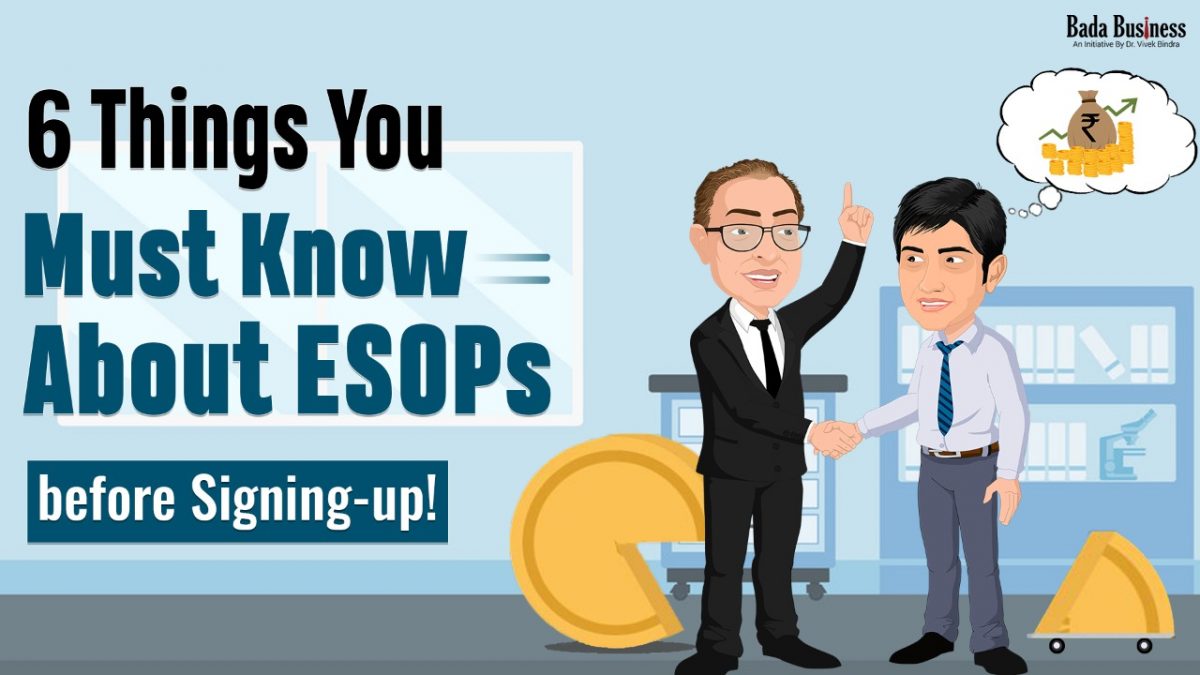Have you come across employee stock ownership plans? Are you being offered one by your organization but are not sure what it is? Whichever is the case this article will tell you everything about ESOPs?
What exactly are employee stock ownership plans?
ESOP is the term that offers employees a chance to have ownership in the firm. It recognizes the best-performing employees and rewards them with an equity stake or cash based on an equity stake. If you have been offered ESOPs in your current organization, it means that the company values your contribution and they wish to make you direct custodians of the company`s long-term growth.
The definition of ESOP was originally introduced in the Companies Act, 1956, which underwent a complete change in the Companies Act, 2013.
There are two types of ESOPs- selective plans and all-employee plans. While the selective plan is only for the senior executives, all employee plans provide the same facility to all employees of the company.
Key Factors you must know before you Sign-up
a). Grant Price- One of the main benefits of getting access to ESOPs is the discount between the grant price and the fair market value, at the time of exercising ESOPs. The lower the grant price, the greater profits you can make while exercising ESOPs.
In the case of startups, the grant price is decided at the face value of the unlisted stock or as value by a Sebi-registered merchant bank. For companies that are listed, the grant price is decided based on the average stock price for a certain period before the issue date.
b). Vesting or lock-in period- ESOPs generally come with a vesting or lock-in period before you become eligible to exercise your option to purchase the stock. The structure varies, depending upon the organization and employee profile. Hence, it is essential to understand what the vesting rules are for the stocks offered to you.
Startups often offer a 1+4 vesting period, which is treated as a minimum period. It maximizes the contribution of an employee in line with the value of ESOPs offered and improves employee retention.
c). Exit Options- When an employee leave the organization before the lock-in period, they lose their right to gain ownership of the ESOPs at the discounted price. If you have vested a certain portion of the ESOPs, they will be held in trust and will be available only after maturity.
However, various myths and facts are revolving around ESOPs need to be addressed. Here are 3 facts every employer and employee must know about ESOPs:
1. ESOP is for Every Organisation
ESOPs are for every organization that is generating profit to support the annual costs of maintaining the ESOP. The profitability of the company is more important than a company`s size. In a profitable ESOP organization, the tax savings alone can be enough to offset the annual costs.
2. Offering ESOPs Does Not Effect Operations
Many company owners feel that after establishing an ESOP, they will have to consult their employees on regular basis regarding the company`s operations. However, the matter of fact is that the management remains in control of the company. Even when the ESOP owns a majority, there is no loss of control of the company.
3. Disclosure of Finances Is Not Required
An ESOP is a qualified retirement plan. Hence, the participants must be provided with the annual statement demonstrating the number of shares and the value for their benefits. No other financial disclosures are required by the organization to its employees who are share-holder.
The companies offer ESOPs to attract more qualified employees. They do it in a phased manner and provide stocks at the end of the financial year to reward their impressive performance.
Many companies startups and companies that can`t provide high packages, offer ESOPs to their employees. We hope we have shed some light on the current trending term- ESOPs.
Are you looking to find solutions for your burning problems? Get practical solutions easily with our step-by-step learning strategies, action plan, frameworks that are designed to empower you with various business functions. From finance to HR, Digital Marketing to IT & Sales, find creative solutions to prominent business problems easily. Click here to know how more about our problem-solving courses: https://www.badabusiness.com/psc


